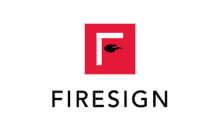Sometimes, a simple desire to help drives business innovation.
That’s been the case for Jason Morris of Round Table Law in Alberta, Canada. With a close family member involved in the home health care profession, Morris had a finger on the pulse of many medical professionals’ concerns as the highly contagious and deadly coronavirus spread. And the estate planning attorney realized one of those concerns landed right in his wheelhouse.
By adapting quickly, he figured out a way to adjust to the new normal, streamline his process to cut costs, and ultimately offer medical professionals deeply discounted help with legal documents such as wills or personal directives during the COVID-19 pandemic.
“It’s making some people feel better,” Morris said.
Taking One Step Back …
Typically, estate planning work involves an in-person interview, drafting documents, a second meeting to review the documents, arranging a time to sign the documents, getting everything executed, and commissioning affidavits of execution among witnesses. But with social distancing guidelines to prevent the spread of the novel coronavirus, the process needed to change dramatically.
“It was partially an attempt to deal with the fact that business as usual wasn’t working with the law firm — it hasn’t for lots of people,” Morris said. “And there was also a desire to do something that would help with the larger problem we are all dealing with.”
… Then Two Steps Forward
Within a week, Morris pivoted so that he could accomplish nearly everything virtually. The most time-consuming piece was automating the client-intake process; he also arranged to conduct interviews online and created a step-by-step instruction guide so that clients — rather than Morris — could do the execution.
Morris recently completed a master’s degree in computational law, which involves program languages used for automating legal reasoning. Morris said he realized that only affidavits of execution required a lawyer’s presence, and they weren’t required for documents to be valid.
“It’s not critical to getting a person a will or a personal directive,” he said. “The rest could be done remotely.”
Morris even offered instructions for how to do the witnessing. The price: half the normal fee.
“If you’re a health care worker, dealing with peoples’ illness, that’s a lot of stress, and this is a way to say thank you to people who are dealing with that so we don’t have to,” Morris said.
The new arrangement also made Morris more efficient at creating the documents: there’s no travel involved, and automated intake demands less of his time, as well.
His advertising has consisted solely of social media posts — posts that online contacts then share — and the Round Table Law website displays a banner at the top advertising the discount for health care workers.
The business cultivated by those posts has kept Morris as busy as he can be, considering the growing number of hats he has been wearing: lawyer, master’s degree student, and home teacher to three children.
“It feels productive,” he said.

